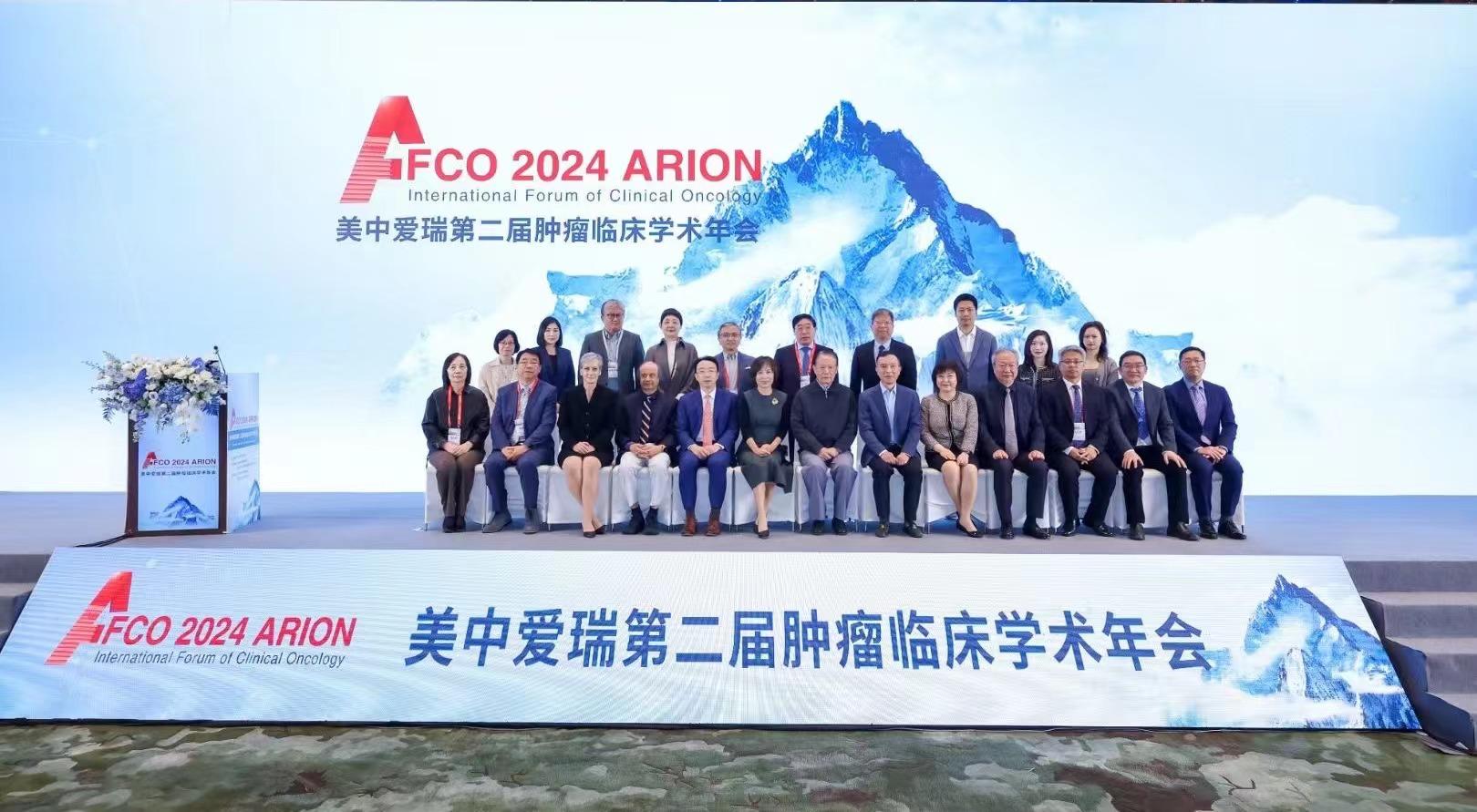Beijing Forum Looks for Better Medical Treatment

"It is very impressive to see that many physicians are able to participate in a patient's care, and the advanced treatments adopted by our Chinese counterparts," Nevena Damjanov, a professor at the University of Pennsylvania, told Science and Technology Daily at the 2024 Arion International Forum of Clinical Oncology (2024 AFCO).
The 2024 AFCO was co-hosted in Beijing on October 13 by the Chinese Association for Life Care and the Arion Cancer Center (ACC). It gathered top experts and scholars in clinical oncology globally to explore new technologies and new models of treatment.
Research never ends
"This kind of cross-border and cross-disciplinary collaboration will potentially result in better treatment outcomes," Damjanov added.
It was her first trip to China. She highlighted the multidisciplinary treatment (MDT) model implemented by ACC with medical institutions worldwide to treat tumors.
Tumor is a major killer that can occur in various organs and tissues of the body, such as brain tumor, lung tumor and liver tumor. "Scientific research is not something with quick results. It takes more than a decade to develop an innovative drug. For example, research into neurofibromatosis (NF) is still far from meeting therapeutic needs. Cooperation on R&D to treat NF is urgently needed," said Xu Zhonghuang, president of ACC.
NF is a genetic disorder that affects the nervous system, and is characterized by tumors. It can develop in various parts of the body and in different age groups.
In 2023, the National Health Commission of China put it on the Second List of Rare Diseases. "This manifested China's commitment to advancing NF treatment and enhancing accessibility to care for those affected," Xu said.
Wu Hao, a professor at the Xuanwu Hospital affiliated with the Capital Medical University in Beijing and a doctor working under the MDT model, said the model can help assess the safety and risk of surgery. "If the patient has some diseases that can be affected by surgery, we adjust the surgery plan accordingly, in case of any potential post-surgery side effects," he said.
Beyond treatment, what is required is psychological counseling for patients, Xu added. "Psychological consultation can aid patients in developing confidence, especially in navigating the recovery period with resilience after surgery," he said.
He called for global medical institutions to beef up science popularization on NF, so that there is a comprehensive understanding of it in both society and families because both are beneficial for the treatment of patients.
Collaboration to narrow the gap
New treatments for each kind of cancer are being explored globally. The development and innovation of treatment technologies serves all.
Collaboration can narrow the gap in the research capacities of different countries, Jean-Paul Thiery, principal scientist at the Biosyngen in Guangzhou, Guangdong province in south China told Science and Technology Daily.
Under the MDT model, it is not an individual but an army of people from different disciplines who work together. The approaches can be shared to promote the treatment of tumors not just in treatment but extending to cooperative R&D on new methods, Thiery said.
Thiery came to China for the first time in 1984 on an academic exchange. Since then, he has maintained a close relationship with Chinese academics and industries.
Currently, AI plays a crucial role in precision oncology and helps manage the side effects. Advancements in spatial profiling technology allow doctors to understand tumor complexity at earlier stages, said Jaffer A. Ajani, a professor of gastrointestinal oncology at the MD Anderson Cancer Center in Texas, the U.S. He noted that the Chinese government's increased support for biomedical research has led to the development of many promising drugs.
"China has some drugs in early development that have been shown to benefit Chinese patients and are now making their way into the U.S. Some of them are immune therapies, and others are targeted therapies. But they all seem to be quite promising," Damjanov said.
"In the future, tumors will likely be sub-classified further, based on mutations, enabling the development of targeted treatment," she said, adding that clinical trials will then determine the most effective treatment combinations, offering better outcomes.
For example, we will identify tumors earlier through screening. Once we identify them, we will identify what makes those tumors unique and be able to treat them more effectively, and with less toxicity and fewer side effects, she added.
"We're trying to reduce cancer into a lesser chronic disease so that even if we detect it at a late stage and it can't be operated on or be cured, we may be able to slow down thedisease and help the patient live much longer. I hope that with time,cancer can be controlled with relatively simple medications," Damjanov said.







